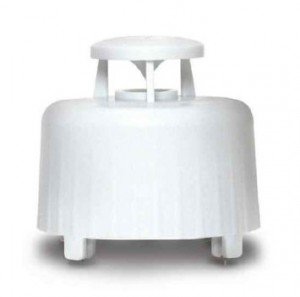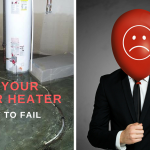 If you’ve ever experienced water damage before, then you know that you never want to experience it again. This is especially true if your water damage originated from a source that could have been prevented, such as a pipe, toilet or other water-using appliance. But water leaks from pipes and such appliances are fairly common, and the slow, gradual kind can be even more destructive because they’re difficult to detect and may even be doing the most damage inside walls or in other hard-to-spot areas of the home. And when you do find it, you might not just have a water damage issue on your hands – but a mold issue as well.
If you’ve ever experienced water damage before, then you know that you never want to experience it again. This is especially true if your water damage originated from a source that could have been prevented, such as a pipe, toilet or other water-using appliance. But water leaks from pipes and such appliances are fairly common, and the slow, gradual kind can be even more destructive because they’re difficult to detect and may even be doing the most damage inside walls or in other hard-to-spot areas of the home. And when you do find it, you might not just have a water damage issue on your hands – but a mold issue as well.
It’s estimated that water leaks from U.S. homes alone can exceed 1 trillion total gallons of wasted water each year.
So just how do you ensure that you’ll never run into such issues with your home’s piping or appliances? That’s where a water alarm comes in especially handy.
Water Alarms 101
Water alarms are electronic devices that are either placed near or integrated with a home’s plumbing. When they detect wetness or moisture, they sound an alarm to notify the homeowner of a potential issue so that it can be resolved before it escalates into a bigger issue. Some popular placements for water alarms include near sump pumps, washing machines, toilets, bath tubs and dishwashers.
 Water alarms come in two basic types – passive and active. Passive alarms work off of a battery and are typically placed on the floor near plumbing or water-dependent appliances, sounding when moisture is detected. While these types of water alarms are more affordable than active types, they’re more limited in what exactly they can do.
Water alarms come in two basic types – passive and active. Passive alarms work off of a battery and are typically placed on the floor near plumbing or water-dependent appliances, sounding when moisture is detected. While these types of water alarms are more affordable than active types, they’re more limited in what exactly they can do.
Active systems are the more advanced type of water alarm, and typically either work with an individual appliance or with the entire home. Active systems don’t just sound an alarm when moisture is detected, but they can actually be programmed to turn off the home’s water until the issue can be resolved. That’s a huge advantage, especially when it comes to more substantial water loss. However, unlike passive systems that can be installed by homeowners, you’ll definitely want to rely on a Miami plumber to install an active alarm.
Contact the Water Alarm Experts
When it comes to water alarms, it’s always best to go with an experienced professional to ensure proper installation. That’s where we come in – we’re you’re trusted Pembroke Pines plumber that can efficiently, affordably and conveniently install water alarm systems to work with your home and prevent costly water damage from occurring.






